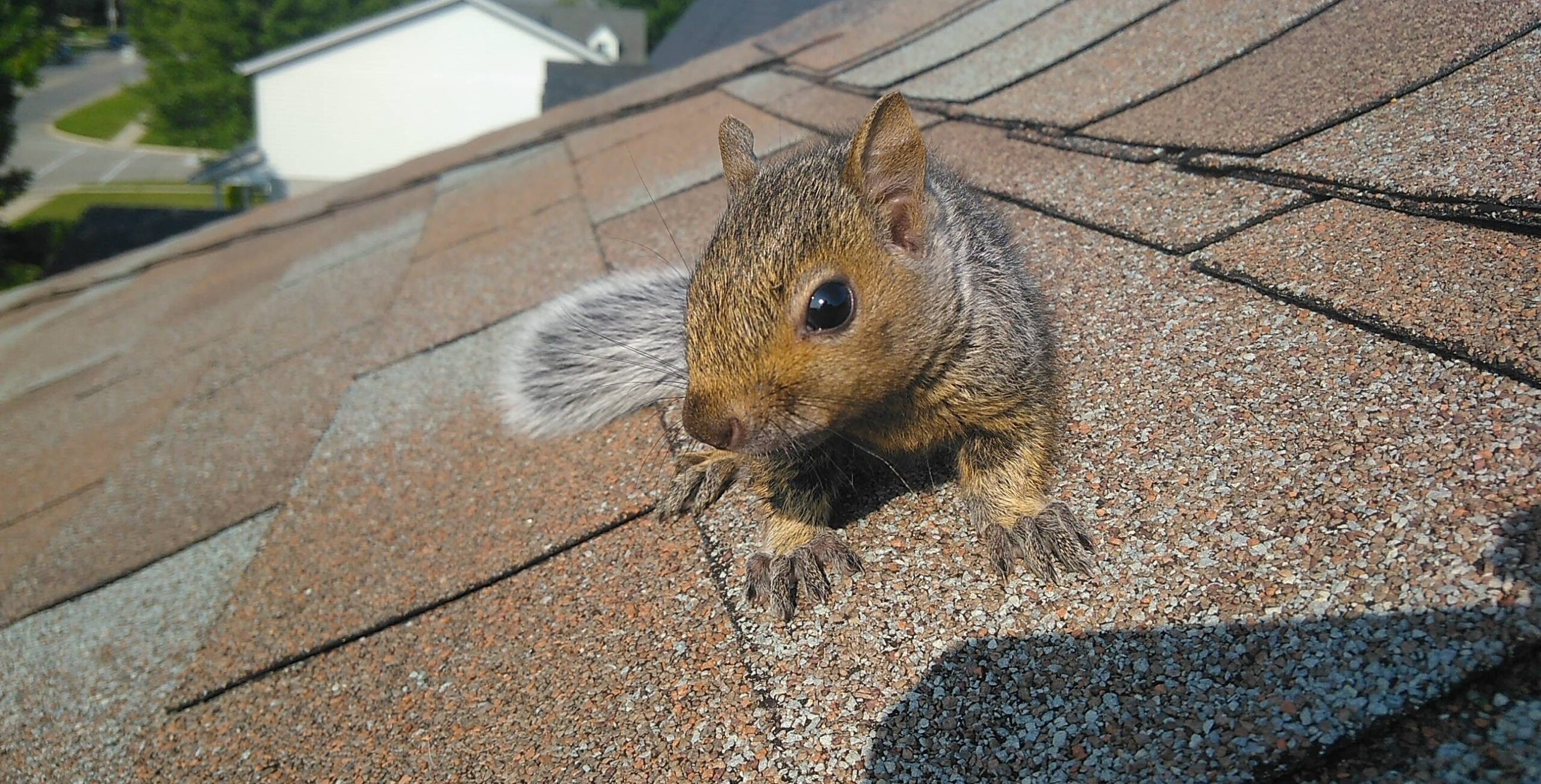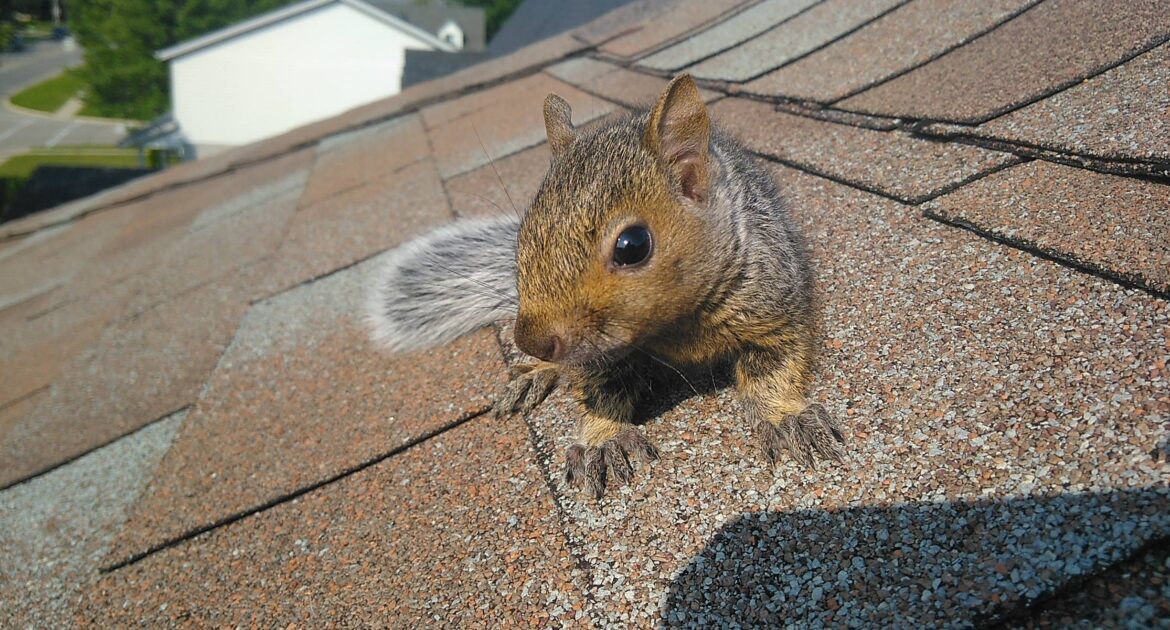You’re relaxing in your living room when suddenly, you hear scratching and scurrying sounds from above. If you live in Atlanta, chances are those noises are coming from squirrels.
While these animals might seem harmless, the damage they can do to your property is anything but minor. From chewing on wires to nesting in attics, squirrels can transform your home into their personal playground.
Understanding the types of squirrels in Atlanta and how squirrels impact your property is key to truly grasping the challenges they bring.
At Skedaddle Humane Wildlife Control in Atlanta, we’ve seen firsthand the frustration squirrels can cause for homeowners. Addressing squirrel problems quickly and effectively is essential to protecting your home and keeping your family safe.
But before we cover how we can help, let’s take a closer look at the types of squirrels in Atlanta and the issues they create.
Types of Squirrels in Atlanta
Atlanta is home to four common types of squirrels, each with unique behaviors and preferences when it comes to their living arrangements.
Eastern Gray Squirrel
Scientific Name: Sciurus carolinensis
Average Length (Including Tail): 16.6–21.6 inches
Weight: 14–21 oz
Eastern Gray Squirrels are the most common squirrels in Atlanta. These agile climbers often sneak into rooftops or attics in search of shelter. Their gray fur and bushy tails make them easy to spot outdoors, especially near bird feeders.
These squirrels love storing nuts like acorns and walnuts, but their chewing habits can destroy wires and wood inside your home. They adjust well to city life, thriving in parks, neighborhoods, and open spaces. Some even have rare black fur, but whether gray or black, they can quickly turn playful antics into costly damage.
American Red Squirrel
Scientific Name: Tamiasciurus hudsonicus
Average Length (Including Tail): 11–14 inches
Weight: 7.1–8.8 oz
American Red Squirrels are much smaller than Eastern Grays, with reddish fur and white bellies. Don’t be fooled by their size, though; these squirrels are tough and won’t hesitate to defend their space. They often store nuts and seeds inside the homes they invade, which can attract pests and lead to messy situations.
These squirrels prefer evergreen forests but can also settle in urban areas. Their loud chattering is hard to ignore once they’ve made their presence known. If they get inside your home, these tiny creatures can cause big headaches.
Fox Squirrel
Scientific Name: Sciurus niger
Average Length (Including Tail): 17.7–27.6 inches
Weight: 1.1–2.2 pounds
Fox Squirrels are the largest squirrel species in Atlanta. Their mix of orange, black, and gray fur makes them stand out. These squirrels spend a lot of time on the ground, gathering acorns and nuts, but they still climb trees and structures with ease.
What makes Fox Squirrels unique is their ability to jump up to 15 feet. This athletic trait helps them get onto roofs, bird feeders, and attic spaces. Their size and strength mean they can do serious damage if they chew on wood or tear into siding.
Flying Squirrel
Scientific Name: Glaucomys volans
Average Length (Including Tail): 8.3–10.2 inches
Weight: 2–3 oz
Flying Squirrels use their special gliding ability to move between trees. A flap of skin called the patagium stretches from their wrists to their ankles, helping them glide through the air. Southern Flying Squirrels, found in Atlanta, are nocturnal and hard to spot during the day.
At night, these social squirrels can be heard nesting in attics, scratching at insulation, or raiding bird feeders. While they’re small, they still cause damage, like chewing on electrical wires or spreading pests through their nesting areas.
How Squirrels Impact Your Property
It’s easy to underestimate the trouble squirrels can cause, but beneath their curious nature lies a long list of problems that can be damaging and costly. Here’s how squirrels impact your property:
- Chewing on Wires: Squirrels have teeth that never stop growing, which means they’re always chewing. Unfortunately, they often target electrical wires in homes. Not only can this damage your wiring system, but it also increases the risk of house fires. Chewing through internet or cable lines can lead to other inconveniences, cutting off essential services.
- Damaging Insulation: Once squirrels find their way into your attic, they’ll often tear apart insulation for their nests. This creates holes and uneven areas in your attic insulation, reducing its effectiveness. Poor insulation allows warm or cool air to escape, driving up your energy bills.
- Nesting in Attics: Attics are a favorite spot for squirrels to nest because they offer safety and shelter. Over time, squirrels can bring in large amounts of debris to build nests, which makes cleaning up even more difficult. Their droppings in these nesting areas can also introduce bacteria and unpleasant odors into your home.
- Structural Damage: Squirrels can gnaw through just about anything, including wooden beams, shutters, and even parts of your roof. Over time, this destruction weakens your home’s structure, creating entry points for rain or other animals.
- Attracting Other Animals: When squirrels hoard food inside your home, it attracts other pests like insects and rodents. This can spiral into an even larger infestation problem.
- Spreading Disease: While squirrels rarely transmit diseases to humans, their droppings and nesting materials can carry harmful bacteria. Being exposed to these materials during a cleanup can be hazardous to your health.
Why Squirrel Problems Should Be Fixed Professionally
Once squirrels get cozy in your home, they won’t leave on their own. Some may try to block apparent entry points or use traps, but these methods are rarely successful. At Skedaddle Humane Wildlife Control, we believe in a smarter, more humane approach.
We use one-way doors that allow squirrels to leave your home, but not come back in. These doors guide them out safely while ensuring they don’t return to cause more chaos. Afterward, we’ll inspect and seal any potential entry points to prevent the problem from happening again. This method is safe, reliable, and prevents unnecessary harm to animals.
Tips to Protect Your Property
While professional services are the best solution once squirrels invade, there are steps you can take to reduce the chances of them getting in:
- Trim Trees: Make sure no tree branches are close to your roof. Squirrels use trees to access attics.
- Inspect Your Home: Check for any cracks or holes where squirrels might enter. Cover vents and gaps in your roofline with durable materials.
- Secure Food Sources: Prevent squirrels from being attracted to your property by keeping pet food and birdseed indoors.
- Keep Attics Uninviting: Remove easy nesting materials like cardboard, paper, or old fabrics from your attic.
While these steps help lower risks, once squirrels are inside, you’ll need professionals to handle the situation effectively.
Say Goodbye to Squirrel Problems with Skedaddle
Your home is no place for squirrels. If these Atlanta squirrel species have turned your attic or walls into their nesting spot, reach out to us for expert help. At Skedaddle Humane Wildlife Control in Atlanta, we have years of experience dealing with how squirrels impact your property. With our one-way doors and prevention methods, we’ll make your home squirrel-free for good.
Request an estimate today to reclaim your home and protect it from further damage. We’re here to help you enjoy the peace of mind you deserve!




